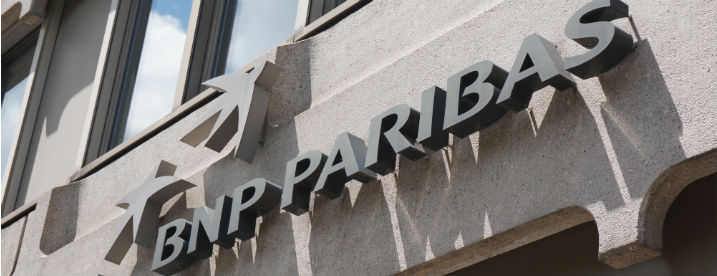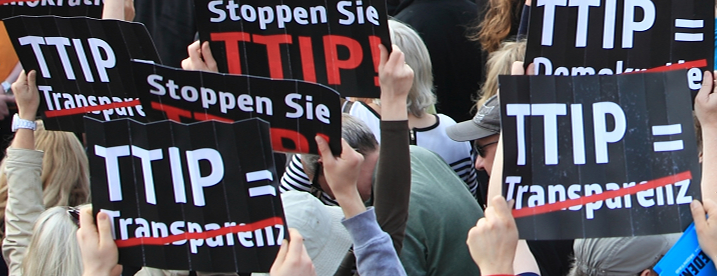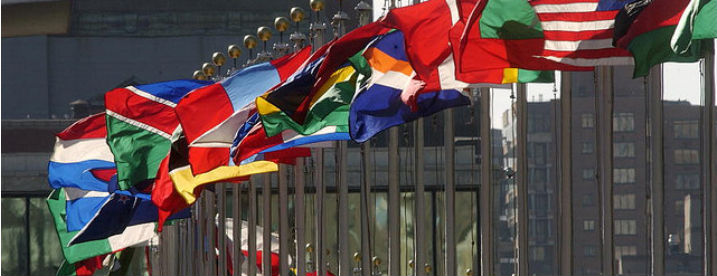By Daniel Winton, July 3, 2014

Tomorrow marks the Fourth of July, the day on which we commemorate the adoption of the Declaration of Independence 238 years ago. For most Americans, the Fourth of July is a day filled with barbecues, fireworks, and, most importantly, patriotism.
Recently, some politicians and corporate leaders have begun to push for another kind of holiday—a repatriation tax holiday. This holiday would provide a tax break for American multinational corporations (MNC) to return money to the United States from abroad.
In contrast to the Fourth of July holiday, which showcases Americans’ support for and appreciation of their country, this tax holiday would result in MNCs swindling America out of legitimate tax revenue. While a new tax holiday might produce some short-term benefits, it would almost certainly end up as a net negative for the country.
By Grace Zhao, July 2, 2014

A couple weeks ago, we wrote a blog post hoping that discipline would go further up the BNP food chain. Unfortunately, the U.S.-BNP Paribas settlement still ineffectively punishes the French bank.
France’s BNP Paribas has agreed to pay a historically large fine of $9 billion for violating sanctions on Sudan, Iran, and Cuba. At face value, this seems to be a big deal. After all, no bank has ever been fined so much for similar crimes.
Yet yesterday, shares in BNP Paribas rose 4 percent, even after the bank pled guilty to a criminal charge. Moreover, no single person within the bank has been charged specifically with any crimes, allowing those who abused executive power to slip away relatively unnoticed. BNP did fire a few employees. Some left on their own. Others faced demotions and pay cuts, small atonements for the billions of dollars that the bank illegally transferred.
By Michele Fletcher, June 30, 2014

This week’s optimistic hubbub surrounding the Swiss-Indian information exchange seemed to mark a new beginning for Swiss transparency and a major breakthrough in India’s hunt for black money. Unfortunately, little happened: Switzerland admitted only the amount of money Indians had stashed in Swiss banks and rejected requests for information regarding specific account holders.
Despite the media’s rude awakening when the Swiss revealed that accountholder information would remain confidential, this result should not have been surprising. A quick look at the Swiss attitude towards information exchange—especially automatic exchange of information, the OECD’s biggest step towards financial transparency—shows that the media’s optimism was premature. Instead, India’s request to Switzerland should be viewed as a litmus test of the Swiss attitude towards the future of banking secrecy.
By Grace Zhao, June 30, 2014

Tax abuse has a significantly negative effect on the enjoyment of human rights.
It is a large issue that is not often associated with humanitarian causes. Often tax abuse is perceived to only impact those on the extremes: the super rich and the miscellaneous rogues who run a money-laundering scheme out of their basements.
Yet secrecy jurisdictions, tax evasion, transfer pricing, and offshore bank accounts all contribute to increasing income inequality regardless of legality. Such inequality skews political power, which then has an undeniable impact on the availability of basic human rights to food, water, and shelter.
Tax abuse is not simply a clandestine activity, rather it is also actively sanctioned by governments through secrecy jurisdictions and other moves such as corporately lobbied tax holidays, both of which contribute to increased inequality and deeper poverty. This then violate the principle that governments should maximize efforts to provide basic human rights.
By Michele Fletcher, June 26, 2014

Last week, Namibian activists raised concerns about transfer pricing in Africa’s extractive sector in an open letter to De Beers. Their letter comes at a critical time in which transfer pricing and tax havens have contributed to an exorbitant amount of capital flight from developing countries. Namibia’s economy is hugely dependent on the extractive sector, particularly in diamond exports, which alone account for 10% of GDP. With increased scrutiny into transfer pricing just across the border in South Africa’s platinum mines, these Namibian activists have delivered a timely, earnest demand to investigate transfer pricing in their own country.
Multinational corporations (MNCs), especially those which operate in Africa, are coming under increased scrutiny by governments, media, and the public over their bookkeeping and payments to governments. The extractive sector in particular has been the focus of new regulations on financial transparency: an extremely positive development, but one which has so far missed an opportunity address larger issues concerning abusive transfer pricing and how MNCs of all sorts conduct their fiscal operations.
By Michele Fletcher, June 20, 2014

The Transatlantic Trade and Investment Partnership seeks to unite U.S. and EU markets: a gigantic trade deal uniting over 800 million consumers across the United States and the European Union, and yet all its important documents remain shielded...
By Grace Zhao, June 20, 2014

Capable and effective institutions and the rule of law benefit all sustainable development goals.
This is one of the arguments brought up by a number of NGOs, including Global Financial Integrity, in an open letter to the UN’s Open Working Group. Scroll down to read the open letter.
The Open Working Group is a 30-member group of the General Assembly of the UN that is responsible for preparing sustainable development goal proposals. As the deadline for the Millennium Development Goals approaches, an action plan for post 2015 has started. The Open Working group was established in January 2013 to draft a series of objectives for the post 2015 development agenda.
The Open Working Group has proposed 17 Sustainable Development Goals to be obtained by 2030, one of which is Goal 16.
By Grace Zhao, June 18, 2014

Apple, Starbucks, and Fiat should prepare to pay their fair share of corporate taxes.
Last year, a U.S. Senate investigation accused Ireland of giving Apple special tax treatment. EU Antitrust Commissioner Joaquin Almunia has now gone further, initiating a probe of these large firms to determine whether the companies’ tax deals with Ireland, the Netherlands, and Luxembourg involve illegal state aid.
The investigations specifically examine the companies’ method of “transfer pricing”. Transfer pricing is simply the accounting practice by which one part of a multinational company charges another part for goods and services to distribute profits between jurisdictions. For large corporations such as Apple, Starbucks, and Fiat, the problem lies in the use of loopholes and creative interpretations of transfer pricing rules to artificially shift profits to countries where there are lower taxes or better tax breaks.








